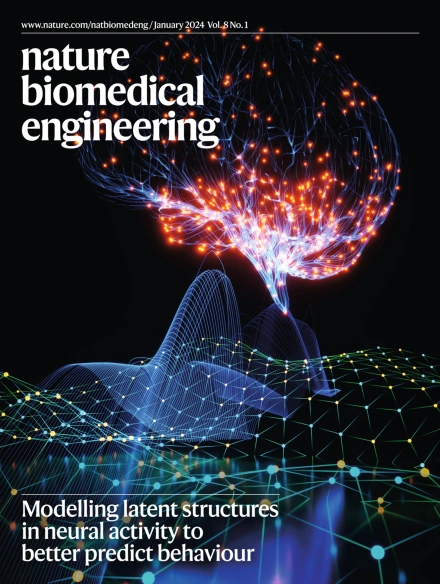One-day rapid sterility test for human-derived biopharmaceuticals.
IF 26.8
1区 医学
Q1 ENGINEERING, BIOMEDICAL
引用次数: 0
Abstract
Biopharmaceuticals are emerging as viable alternatives to chemically synthesized drugs for potential treatment to various diseases. However, many of these human-derived components cannot withstand terminal sterilization procedures, and the duration of conventional sterility testing methods often exceeds their limited shelf life. Consequently, biopharmaceuticals are now frequently administered to patients before sterility confirmation. Here we present a nanoparticle-based enrichment and rapid sterility test that can determine product sterility within a single day, mitigating clinical risks of biopharmaceuticals and maintaining therapeutic efficacies during delivery. The assay incorporates synthetic beta-2-glycoprotein I peptides for selective isolation and purification of a broad spectrum of microorganisms and a microfluidic chip designed to automatically monitor their metabolic activities via fluorescence imaging, which are inferred from the reduction of a non-toxic dye as they grow. Compared with conventional approaches, the turnaround time was substantially reduced by >58 h with 100% accuracy and a limit of detection down to a concentration of 1 colony forming unit per millilitre. We validate our approach using various forms of clinical-grade biopharmaceutical products.人源性生物药品一日快速无菌试验。
生物制药正在成为化学合成药物的可行替代品,用于治疗各种疾病。然而,许多这些人体来源的成分不能经受终端灭菌程序,而传统的无菌检测方法的持续时间往往超过其有限的保质期。因此,现在经常在确认不育之前给患者使用生物药物。在这里,我们提出了一种基于纳米粒子的富集和快速无菌试验,可以在一天内确定产品的无菌性,降低生物制药的临床风险,并在交付过程中保持治疗效果。该试验结合了合成的β -2糖蛋白I肽,用于选择性分离和纯化广谱微生物,以及设计用于通过荧光成像自动监测其代谢活动的微流控芯片,这是根据无毒染料在生长过程中的减少而推断出来的。与传统方法相比,周转时间大大缩短了58h,准确度为100%,检测限降至每毫升1个菌落形成单位的浓度。我们使用各种形式的临床级生物制药产品验证我们的方法。
本文章由计算机程序翻译,如有差异,请以英文原文为准。
求助全文
约1分钟内获得全文
求助全文
来源期刊

Nature Biomedical Engineering
Medicine-Medicine (miscellaneous)
CiteScore
45.30
自引率
1.10%
发文量
138
期刊介绍:
Nature Biomedical Engineering is an online-only monthly journal that was launched in January 2017. It aims to publish original research, reviews, and commentary focusing on applied biomedicine and health technology. The journal targets a diverse audience, including life scientists who are involved in developing experimental or computational systems and methods to enhance our understanding of human physiology. It also covers biomedical researchers and engineers who are engaged in designing or optimizing therapies, assays, devices, or procedures for diagnosing or treating diseases. Additionally, clinicians, who make use of research outputs to evaluate patient health or administer therapy in various clinical settings and healthcare contexts, are also part of the target audience.
 求助内容:
求助内容: 应助结果提醒方式:
应助结果提醒方式:


